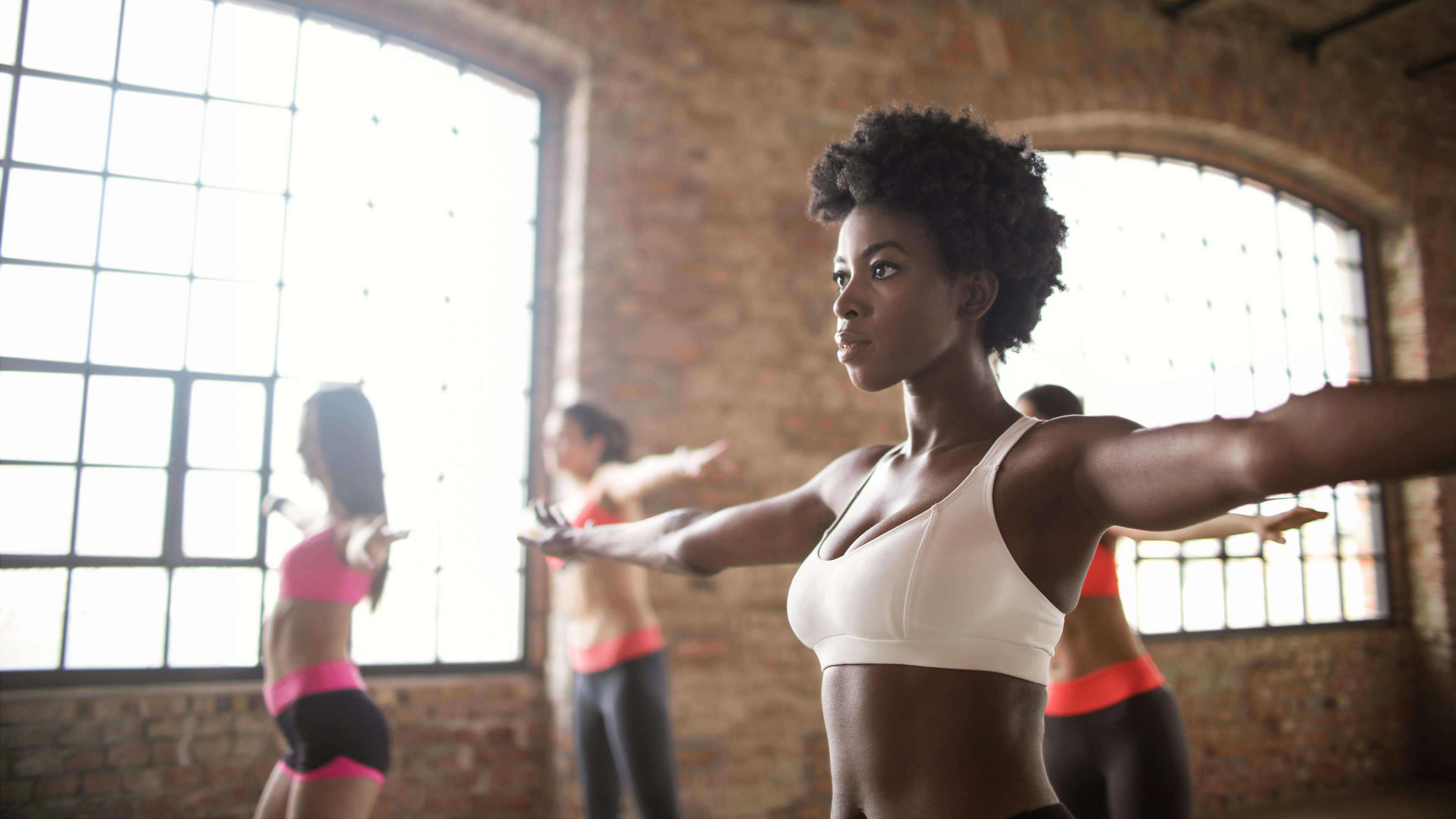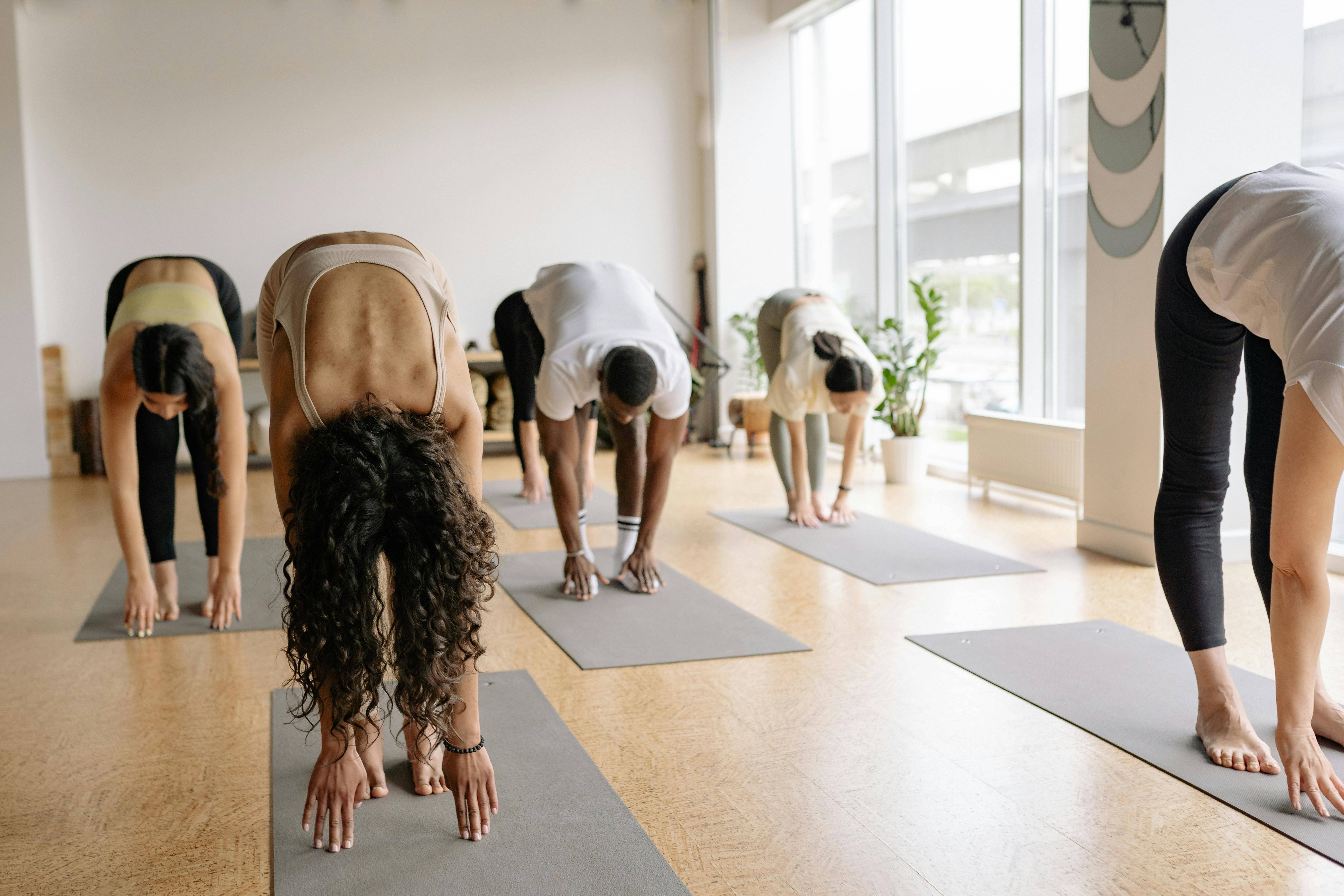We’re all familiar with the oft-touted benefits of working out: improved heart health, mental clarity, weight maintenance, strength, endurance, agility, smooth digestion, better sleep…
And now, another surprising benefit from exercise: career success.
Yes, having more energy, great posture and clearer mental focus will help you in your work, but something even better can happen to your big-picture goals when physical activity is a regular part of your life.
Think about it this way: There are a lot of things that change in your mind and in your life when you’re consistently working out and feeling good in your body. It stands to reason that if you can demonstrate motivation to work out, you’ll likely be motivated to do other things.
“How you work out is an indication of how you work,” says Ari Banayan, co-founder of Habit Nest. While this doesn’t necessarily mean going super hard all the time or training like a professional athlete, creating a habit around working out—and pushing yourself to improve—can translate into skills that impact your work life, too.
Working out changes the structure of your life
When you go out of your way to make exercise a priority, other things in your life shift out of the way to make room. You also start to make consistent decisions that support your workout plans, like getting enough sleep, not overdoing it on wine so your 7 a.m. class isn’t torture and seeking out the support of those around you.
“Altering your environment to encourage a healthy behavior is a strategy that can be transferred to other areas of your life,” says Ivory Hayes, RPh, ACE-certified health coach at My Health Coach. This means regularly making decisions and inviting practices, relationships and choices into your life that keep you aligned with your goals; perhaps attending networking events; taking classes; seeking out a mentor or spending time developing your portfolio in service of your bigger goal. You’ll be more attuned to the kind of choices you need to make if you’re already used to altering your environment and your choices to support your health.
Working out promotes a feeling of self-efficacy
That old adage—whether you think you can or you can’t, either way, you’re right—is so true when it comes to fitness and to your career goals.
In psychological circles, this is called self-efficacy, which Hayes explains as “an individual’s belief in his or her ability to successfully engage in and/or complete a particular task.” She works with clients to build their self-efficacy and confidence by setting small achievable goals.
When you work out and see the small gains in your performance each day, you have more motivation to continue seeing that the work is paying off. Your efforts are rewarded (and your work is obviously not for nothing).“High self-efficacy is like a self-fulfilling prophecy,” says Hayes. “The more you believe, the harder you work and therefore the more likely you are to actually meet your goal.”
When you surprise yourself with what you can achieve physically, you open the door to surprising yourself with what else you can do. The mental blocks we put up for ourselves—I’ll never be smart enough for that job, for instance—can often be the biggest hurdles to overcome. By applying the same goal-setting skills and drawing from your practiced sense of self-efficacy, Hayes advises that “you can break down any endeavor into smaller, achievable tasks that continue to build your confidence for a given goal even more.”
Working out removes your excuses
When you first start working out, you encounter any number of excuses on a given day not to do it: I’m too tired. I don’t have time. I don’t want to.
To establish a consistent habit, “you have to ignore the thoughts that want to hold you back,” Banayan says. “You have to carefully examine, and often overrule, your body’s drive to be lazy.” You have to push through those moments of disillusionment and demotivation and stay on track with your larger goal. “Over time, you become a person who doesn’t buy into his or her own excuses. This is a massively important characteristic for anyone who wants to achieve career success,” he adds.
Working out builds mental endurance
Mental endurance—that mind-over-matter skill that allows you to push through difficulty—is built by working out and being pushed to your limits. Similarly, when it comes to workplace challenges or pushing through difficulty to prove yourself, having a certain degree of mental stamina can be valuable.
Parinaz Samimi, a yoga instructor, personal trainer and sleep and wellness expert with Mattressfirm.com, says, “Before becoming a yoga instructor and personal trainer, I began working out with my own personal trainer in individual and group training sessions. Prior to this routine, I had never engaged in any activities that created discomfort, mental or physical. I didn’t understand how to endure pain without immediately resorting to quitting.”
Training in a gym whose foundation was “the mind is primary” – i.e. quitting is not an option – was a growing experience.“It took me some time to get accustomed to what I perceived to be a harsh method of getting people to become comfortable with discomfort.” Now, she says, she knows this method changed her and her life for the better.
“I didn’t even know I had the mental capacity to deal with and overcome discomfort. Four days a week, I was pushed to my mental and physical edge,” Samimi says. “Moments when I thought I had nothing left to give and was ready to throw in the towel, I was reminded that my thoughts create my reality.”
When quitting isn’t an option, we allow ourselves to be challenged to the point of growth and change. This type of mental endurance—to power through challenges, Samimi says—directly transferred over into her approach to work.“When I was presented with a challenge at work, I was able to better cope with the discomfort and work out a solution before reacting and walking away.”
Working out is a way to empower and be empowered
Group training is especially beneficial when it comes to building camaraderie, sharing motivation and feeling empowered.“When one person on the team succeeds, that success has a trickle-down effect and the team as a whole rises above,” Samimi says. Working out in a group translates directly to your work life, building skills like being confident in showing your strengths, being vulnerable in showing your weaknesses and being able to ask for and offer help.
Transcribe this into a work situation and the parallels are clear: When you’re part of a team and can contribute to the whole and allow others to shine as well, everyone benefits.
Working out strengthens your willpower
… and we don’t just mean the kind that helps you say no to another piece of cake.
When you’re working towards a goal of any kind, career or physical or otherwise, your willpower comes into play. Willpower is a form of desire.“In relationship to a given goal, our willpower is stronger or weaker depending on how much we desire to achieve the end result,” Banayan says. “When you work out consistently, you build an ability to remember your aim,” which means you are continuously motivated by something intrinsic.
When it comes to career success, this matters in a big way. In any job, on any path, some days are going to be hard and some tasks are going to be onerous.
“Willpower is what allows you to continue to power through,” Banayan says. “You have to remember that your aim is larger than what you’re experiencing in this moment, that your end result requires every small action you’re taking right now.” Committing to working out and continuing to challenge yourself physically and mentally serves as kind of practice for the very same willpower that will propel your career goals through the toughest situations.
Working out teaches you how to push to achieve
Working out isn’t always easy. You willingly push yourself to move, to achieve, to grow, to get better, and the shifts in thinking and habits that accompany this choice translate directly into how you’ll work and pursue your goals.
“If you train yourself to be the type of person who runs that extra minute at the end of every workout to challenge yourself, or who pushes through that last rep when your muscles are begging you to stop, you will see the same way of thinking carry over into who you are in every other part of your life,” Banayan says.
There is little difference between pushing yourself physically and mentally, and when it comes to going after your big career goals, being adept at both can help you go further.
This post was written by Amy Height, a holistic health coach, triathlete and yogi traveling North America full-time to discover the best in nutrition and fitness. She shares healthy living ideas and plant-based, gluten-free recipes at From the Ground Up Wellness. Follow the adventures and find some fit-foodie inspiration on Instagram.









